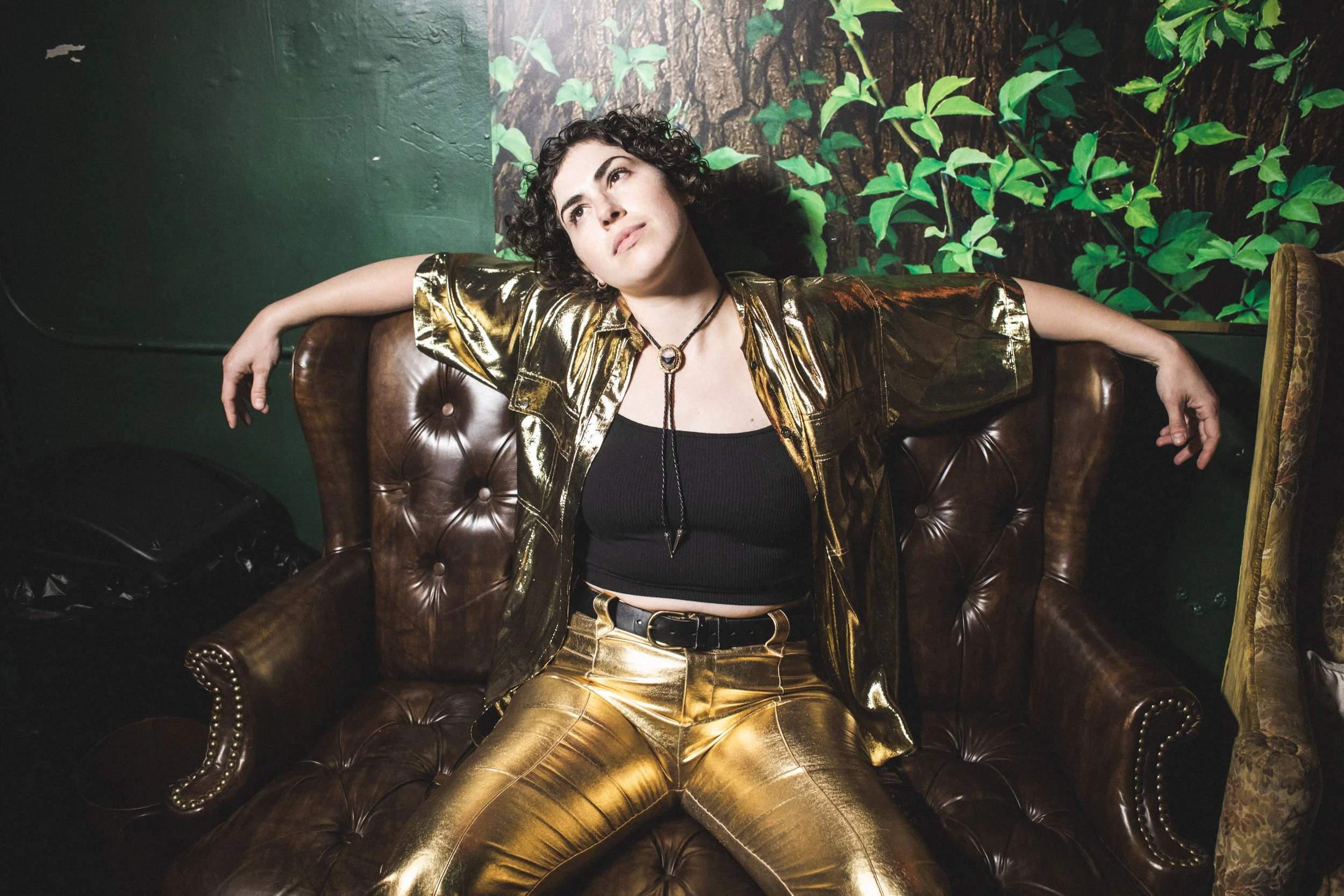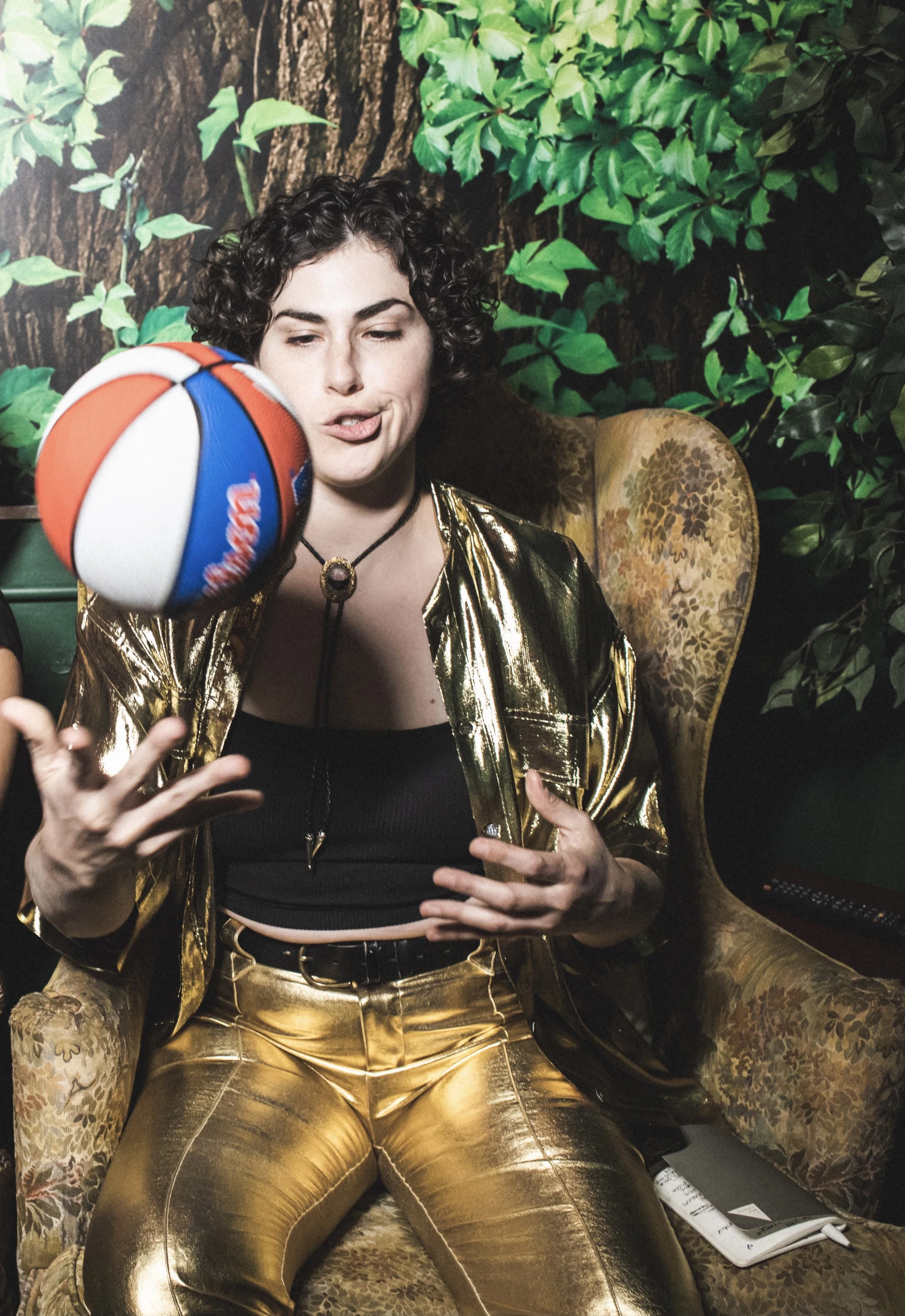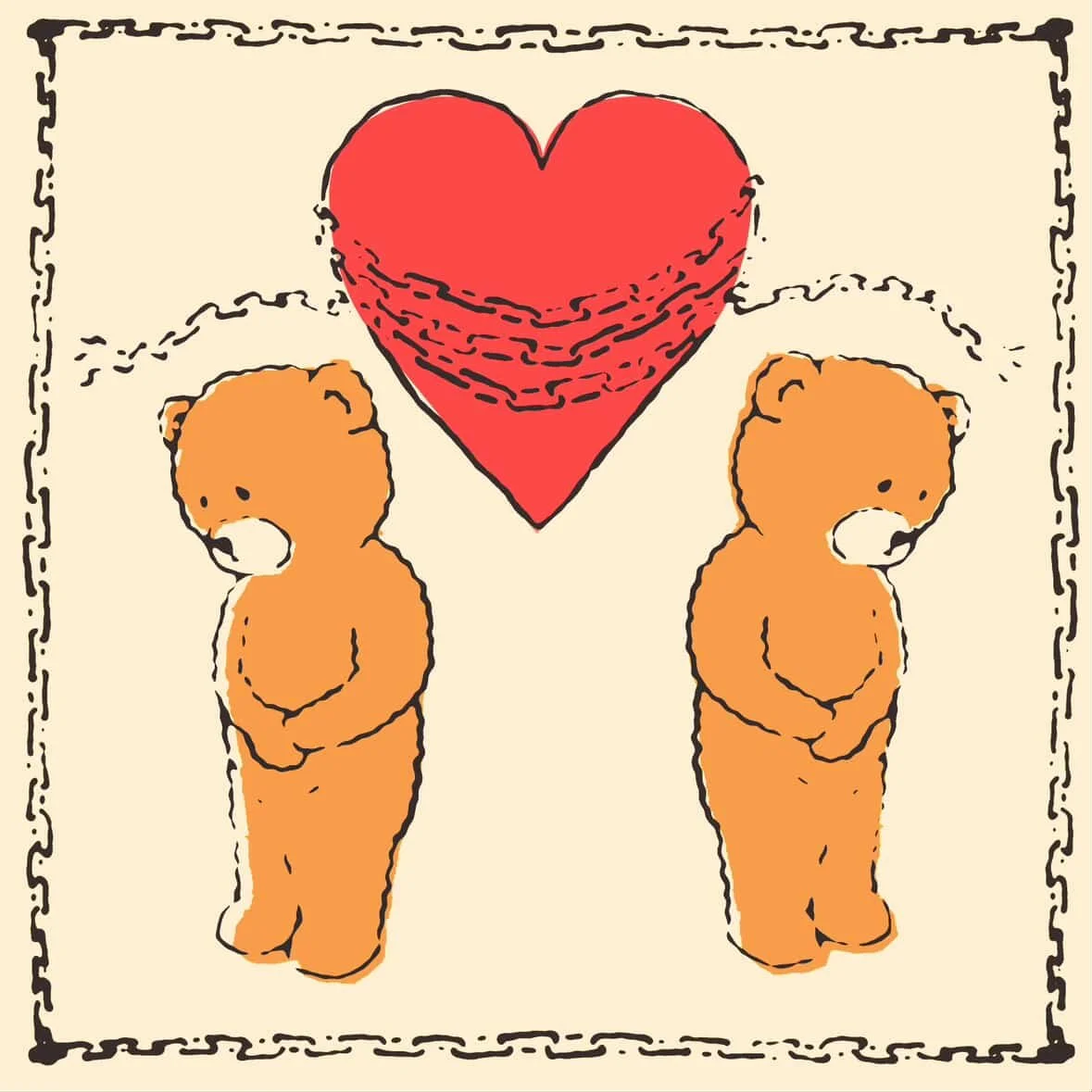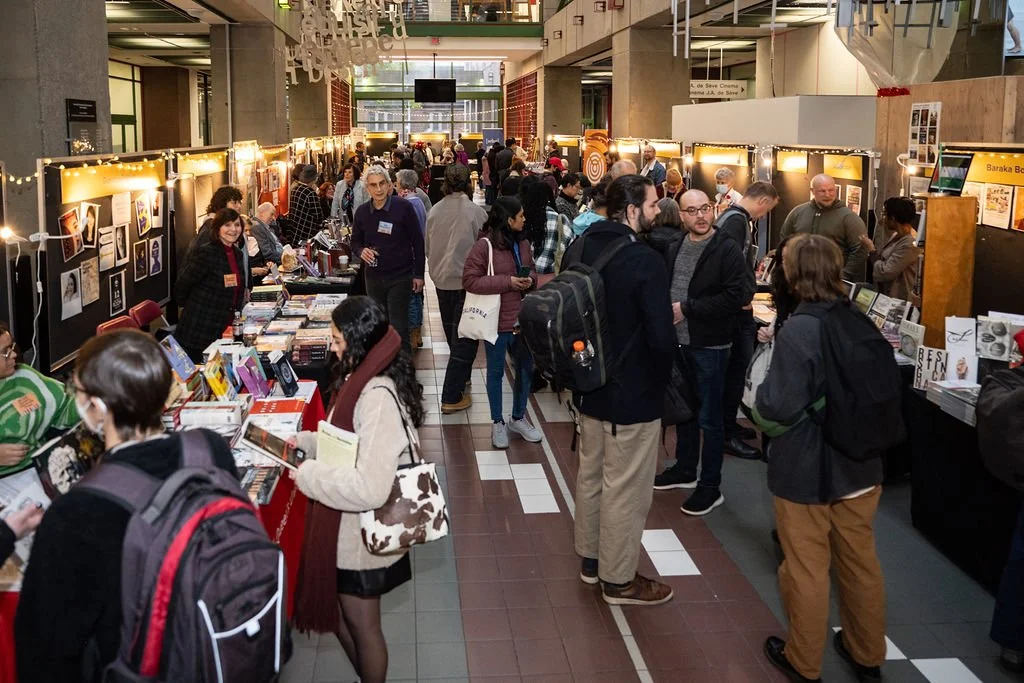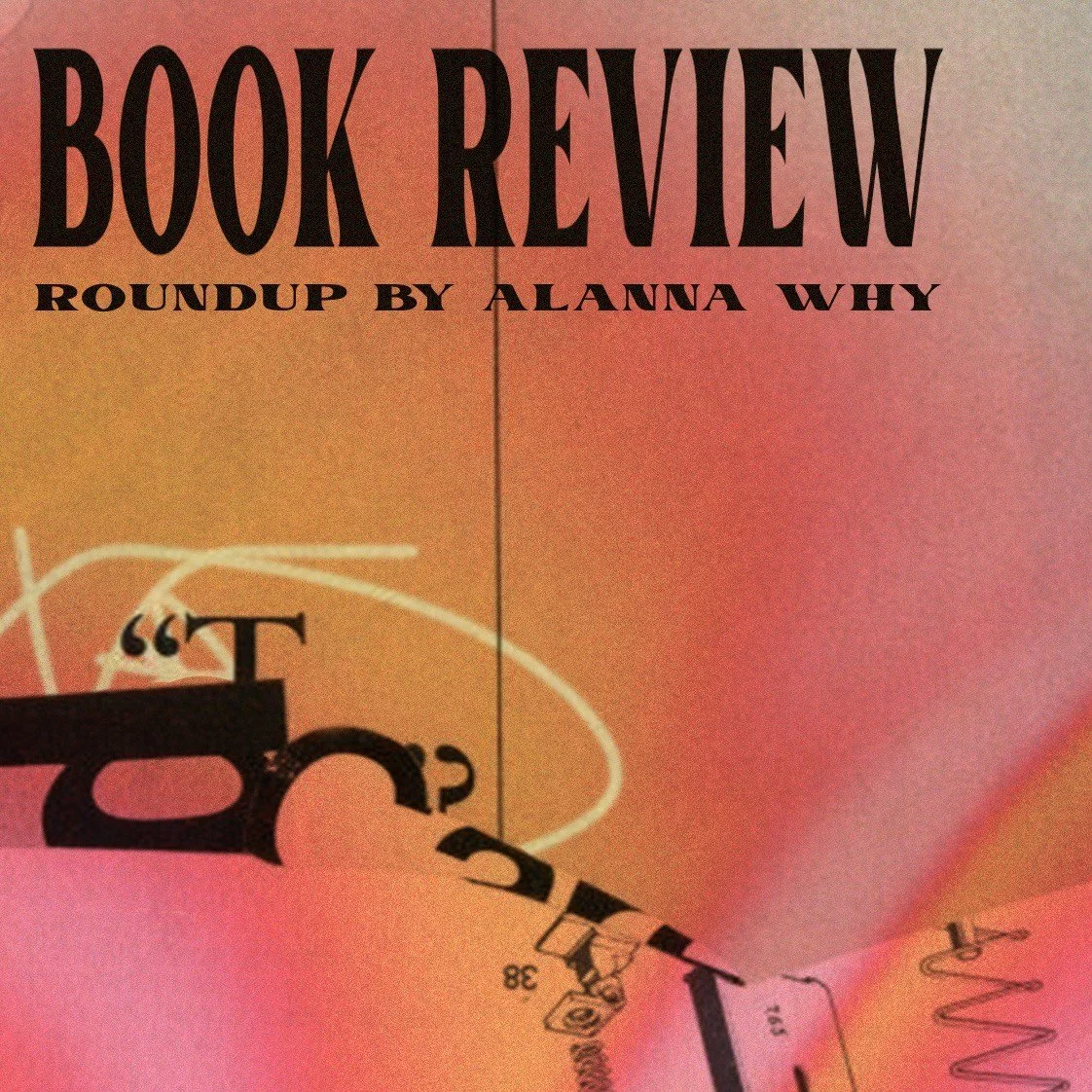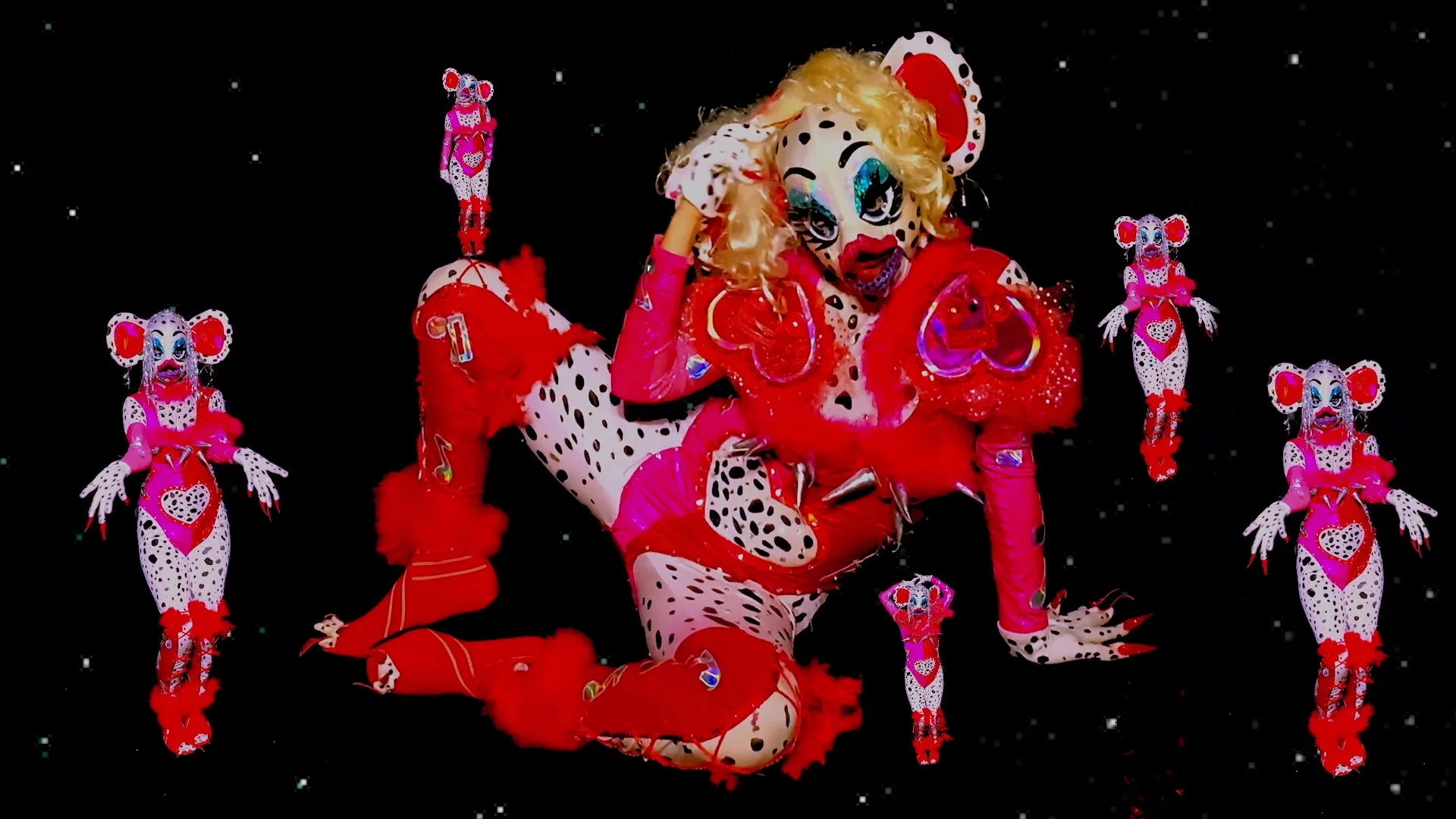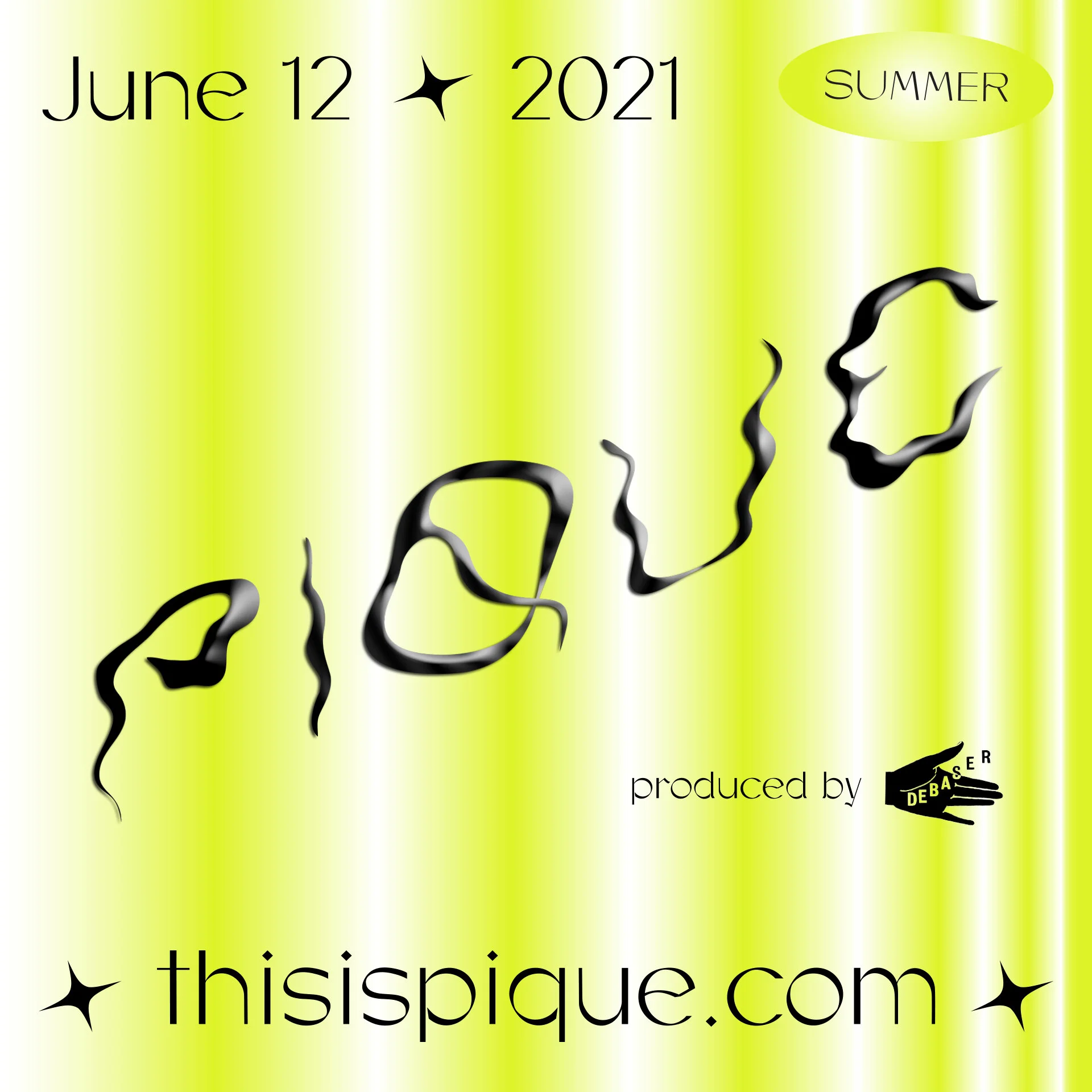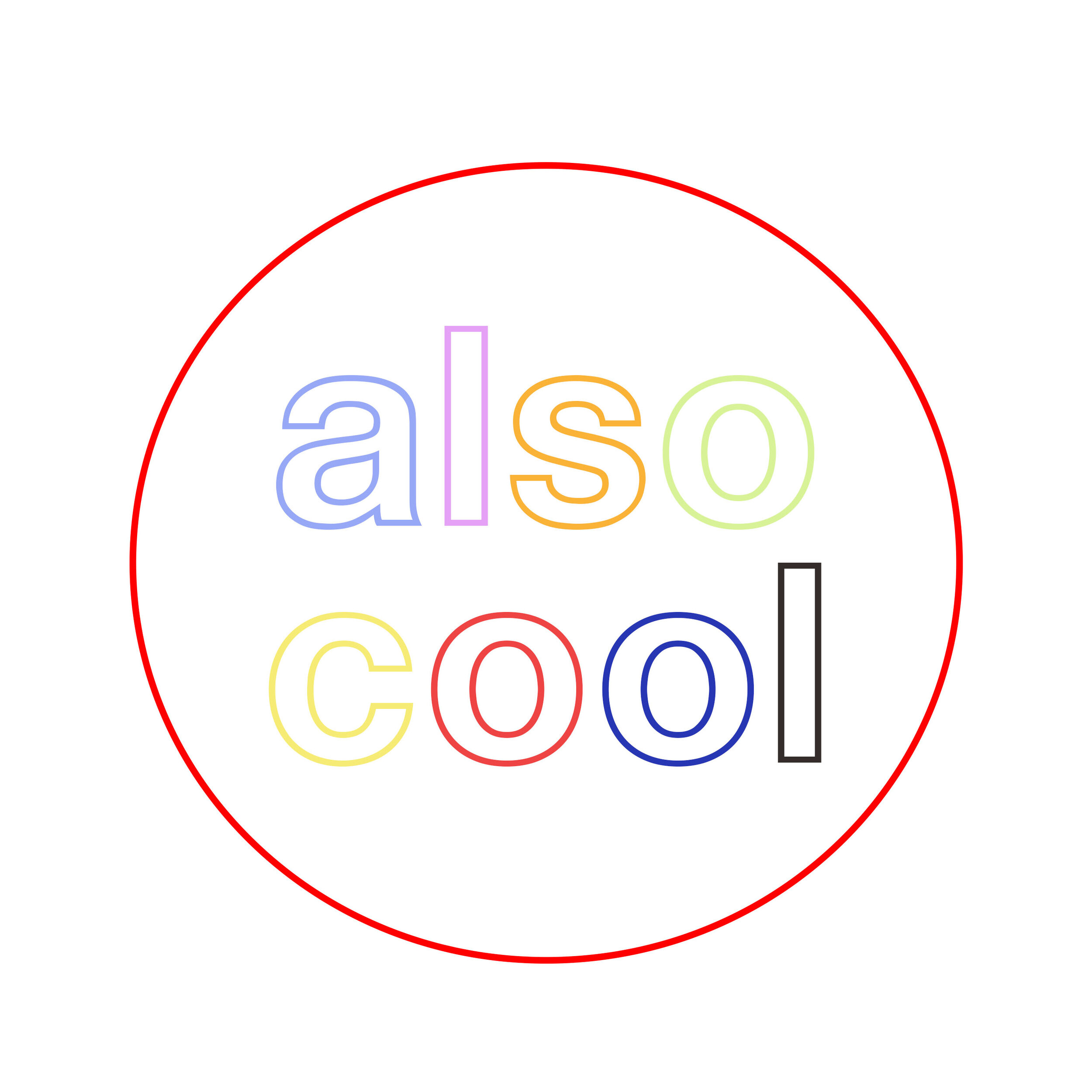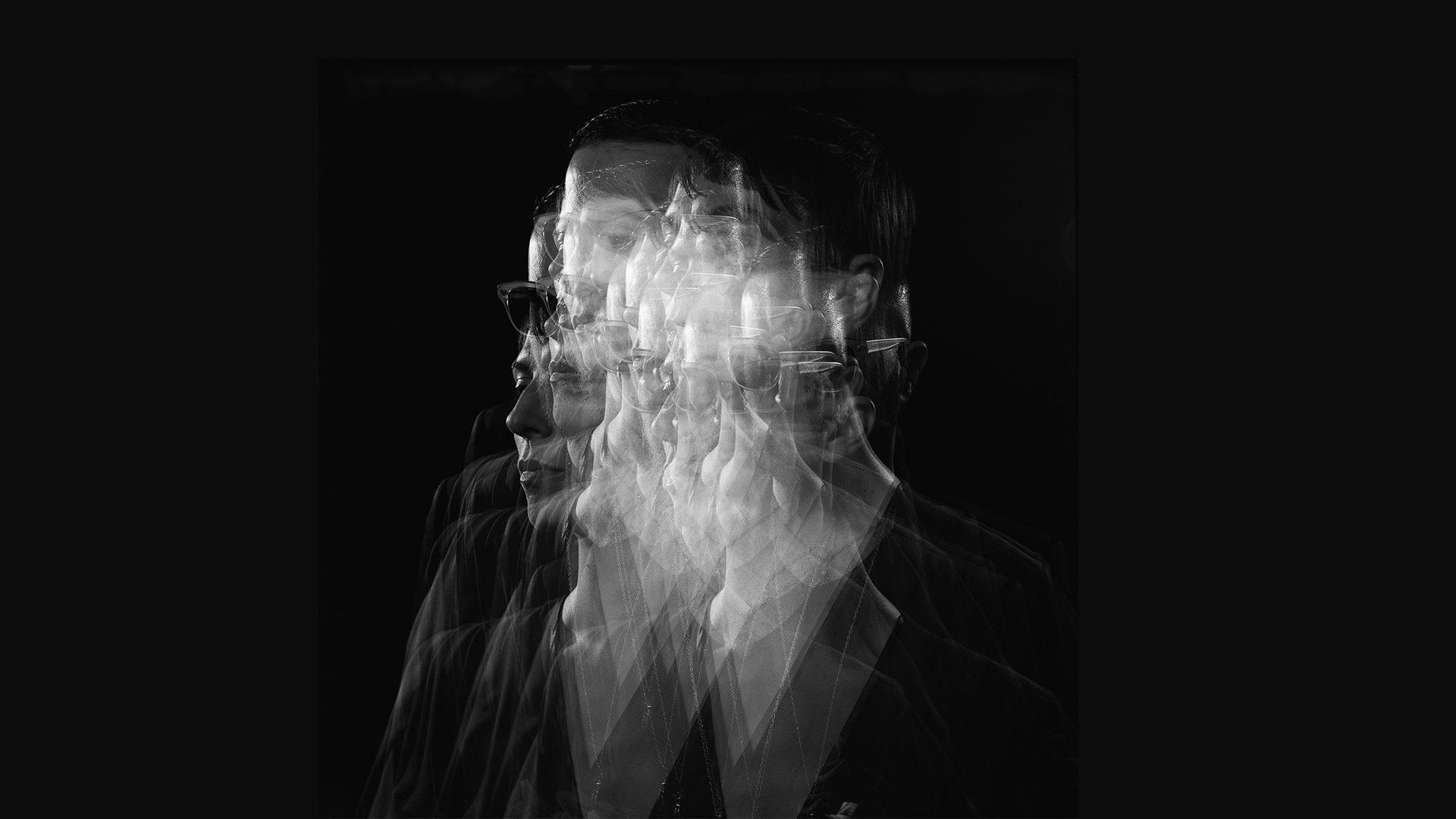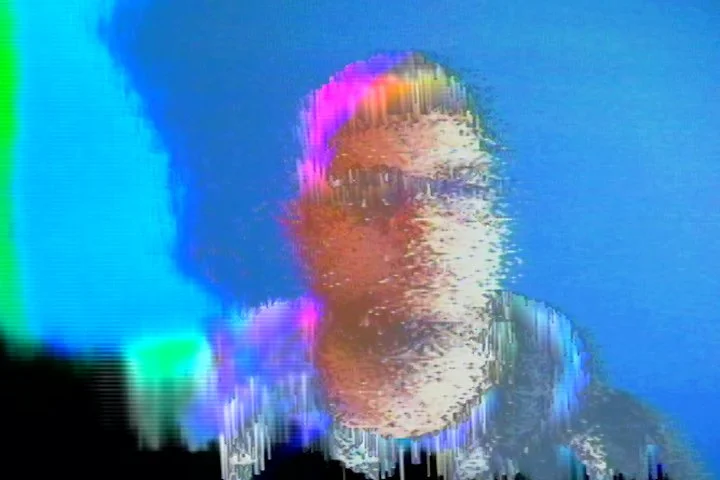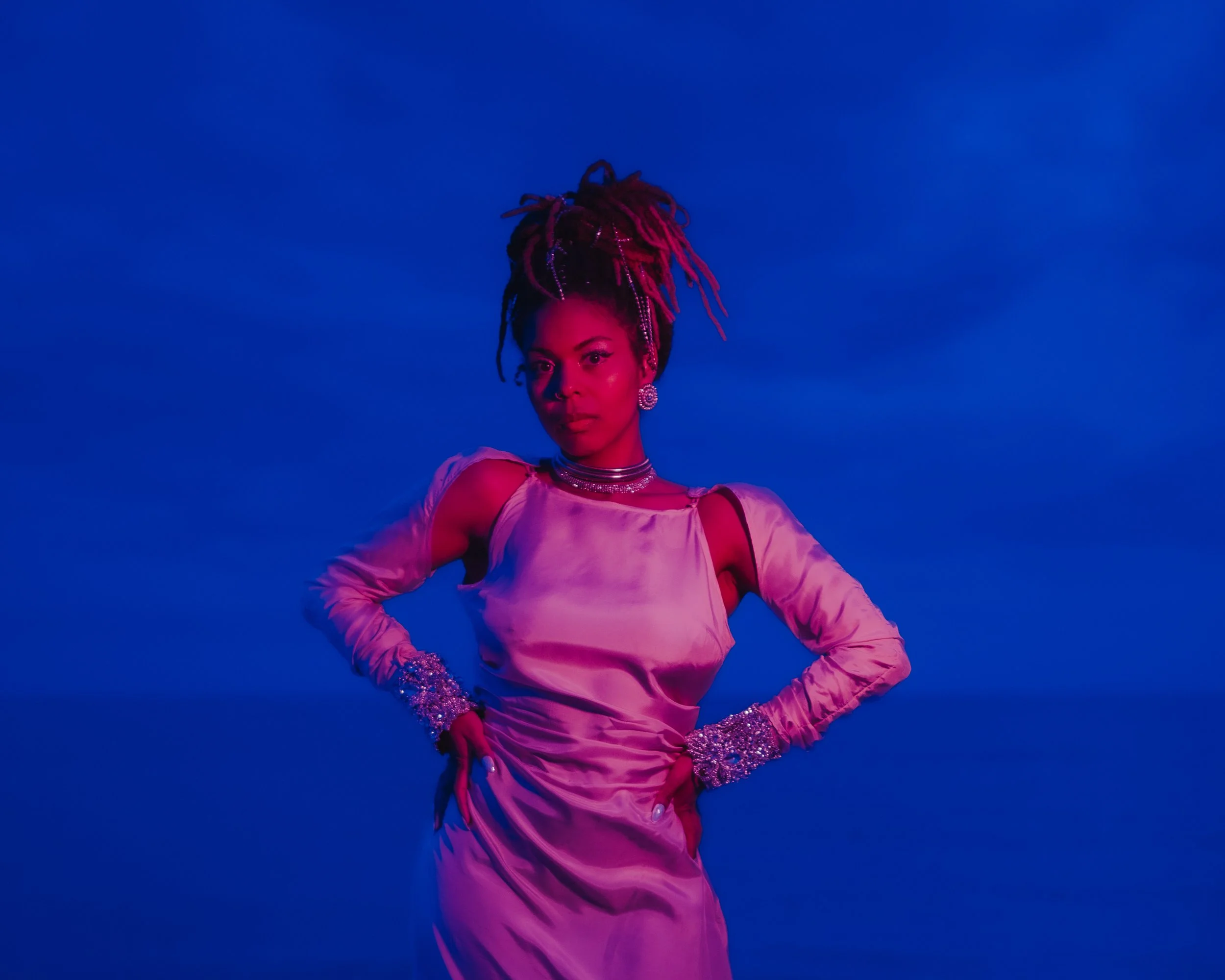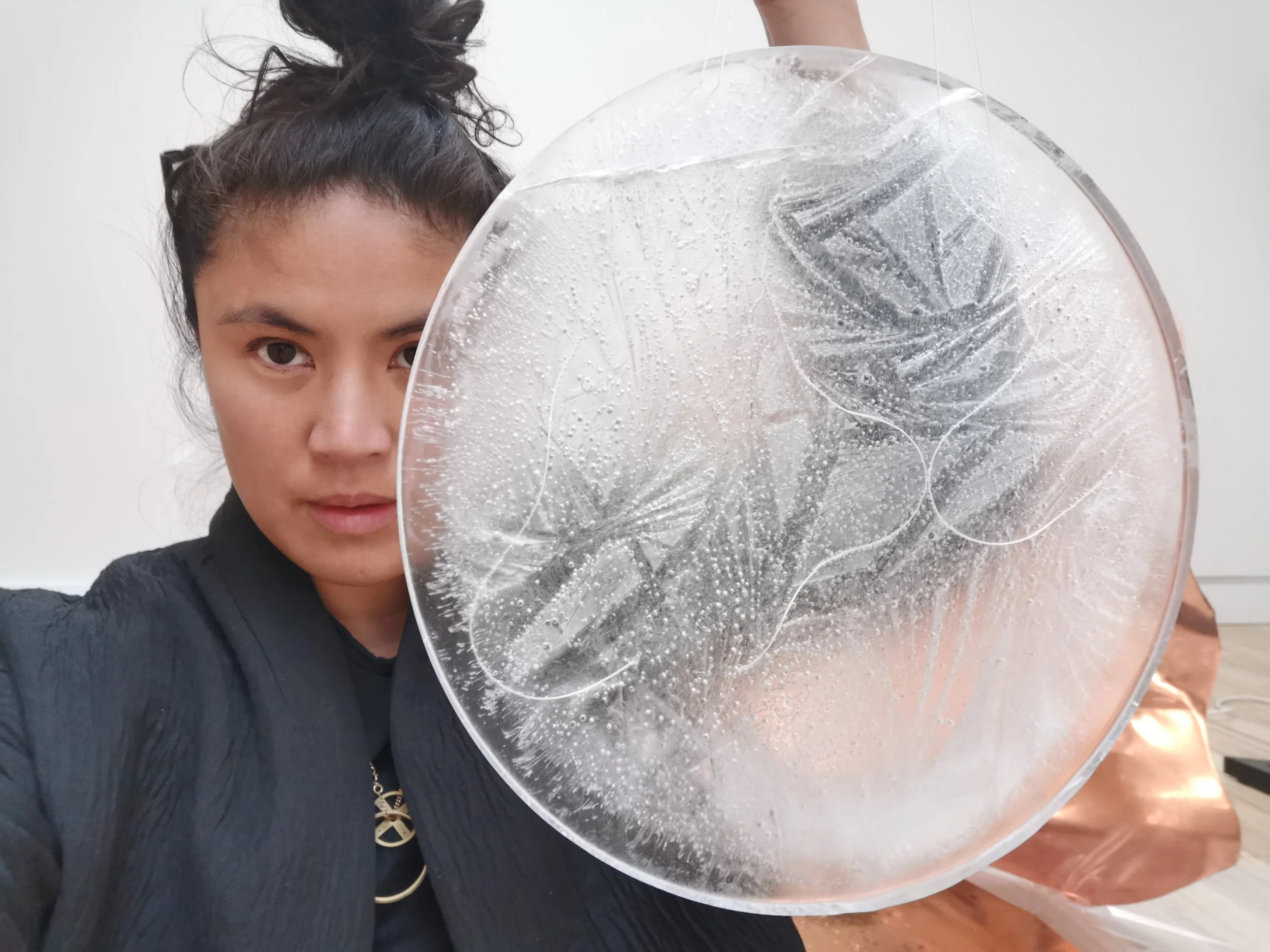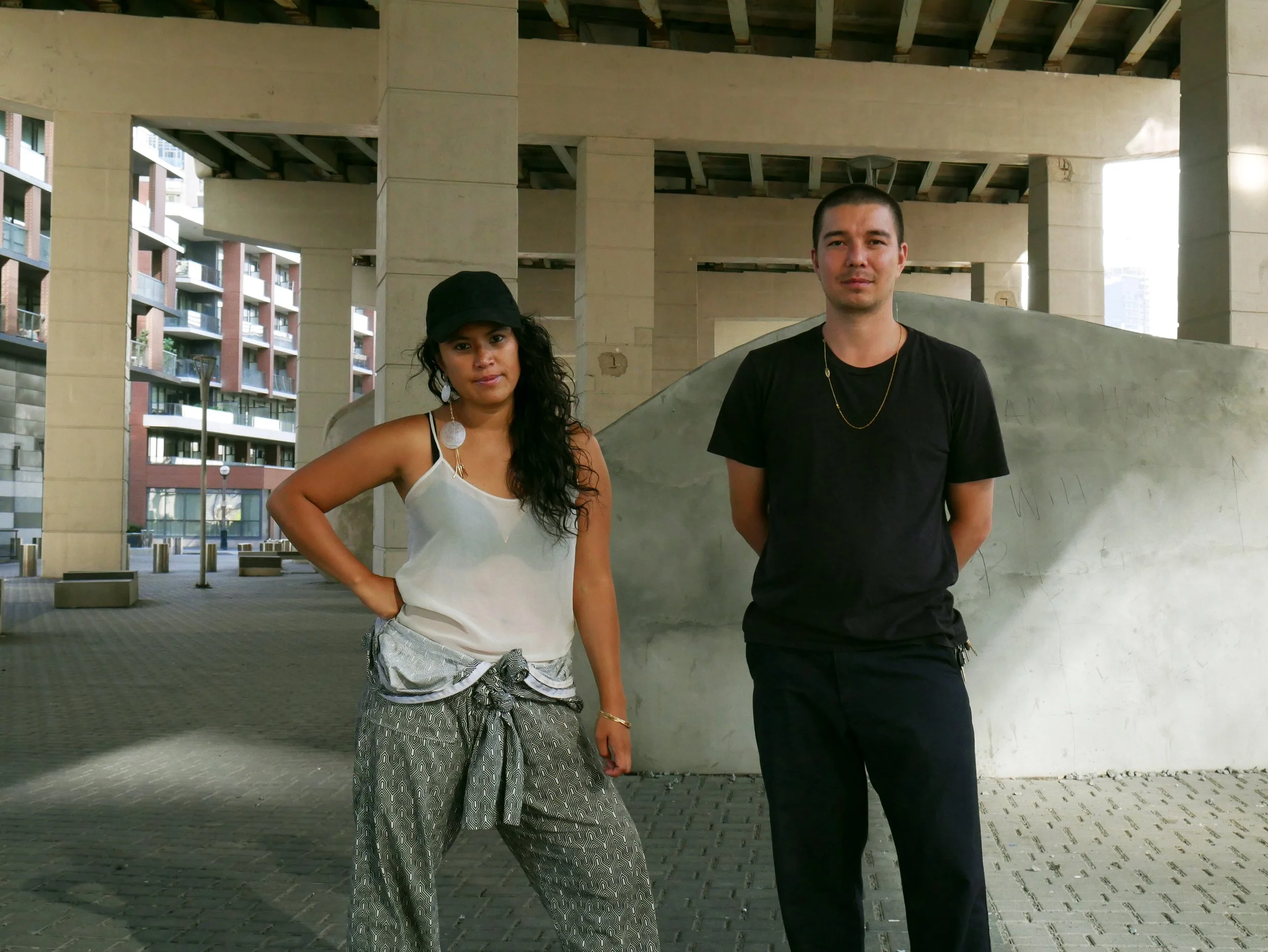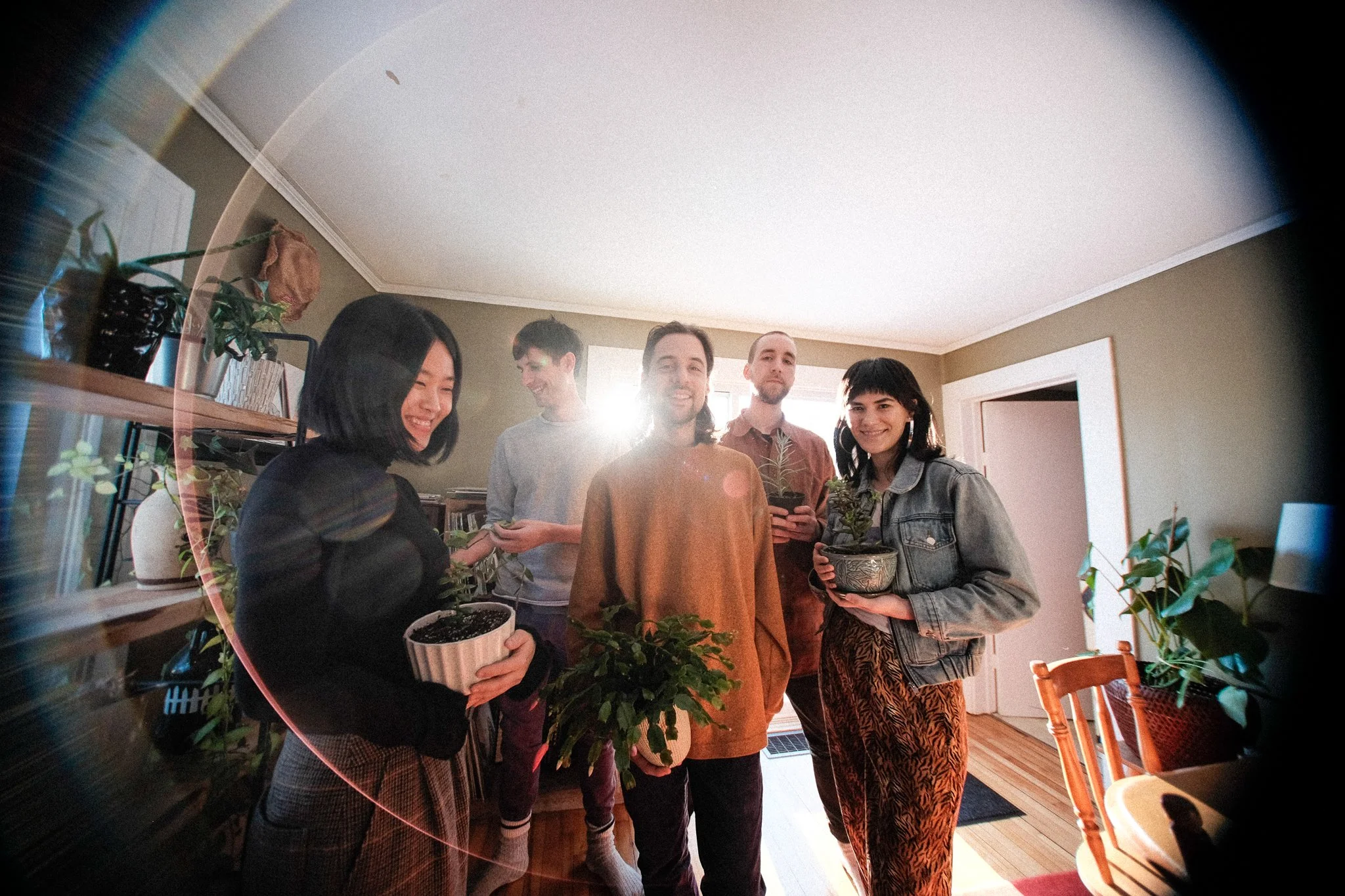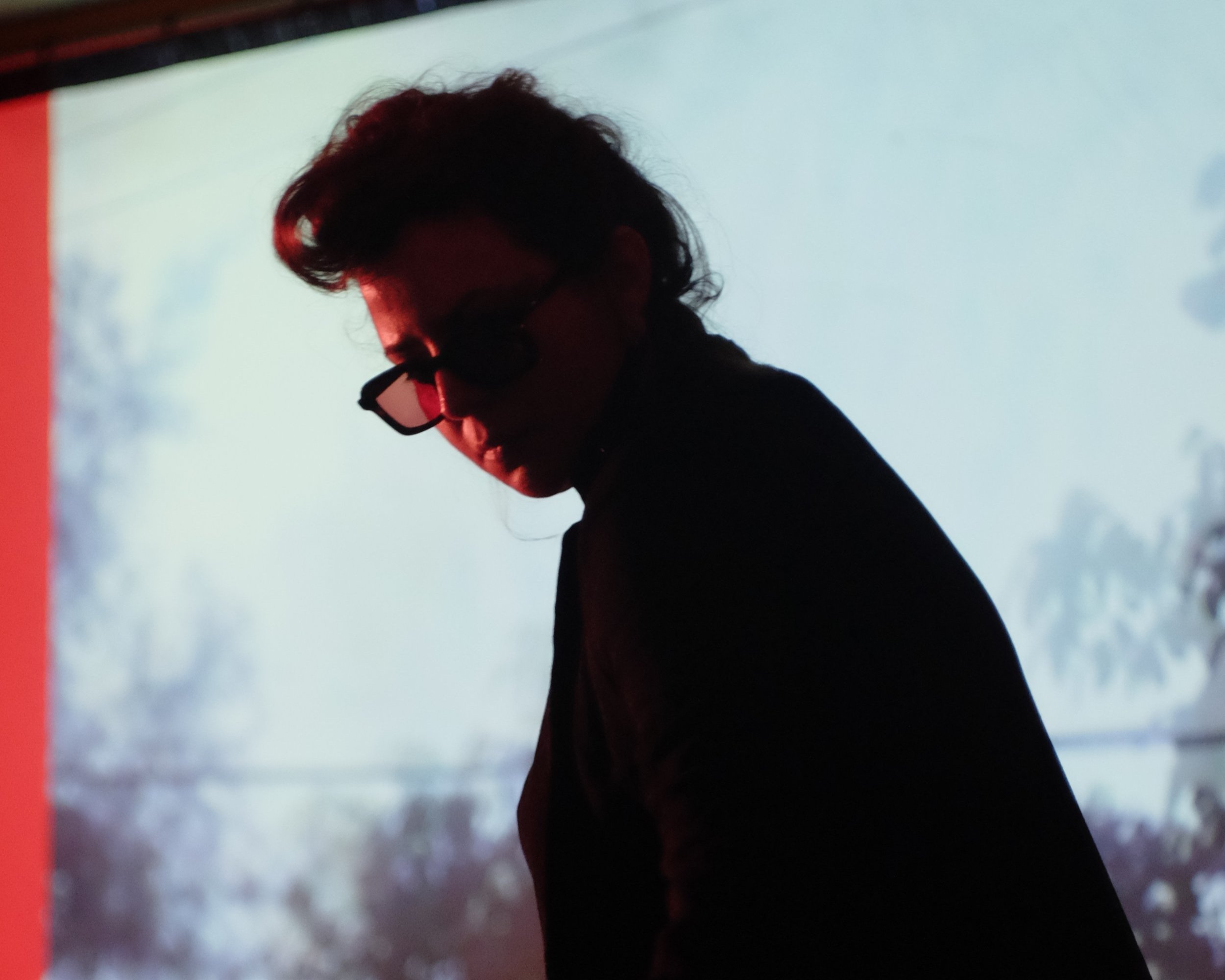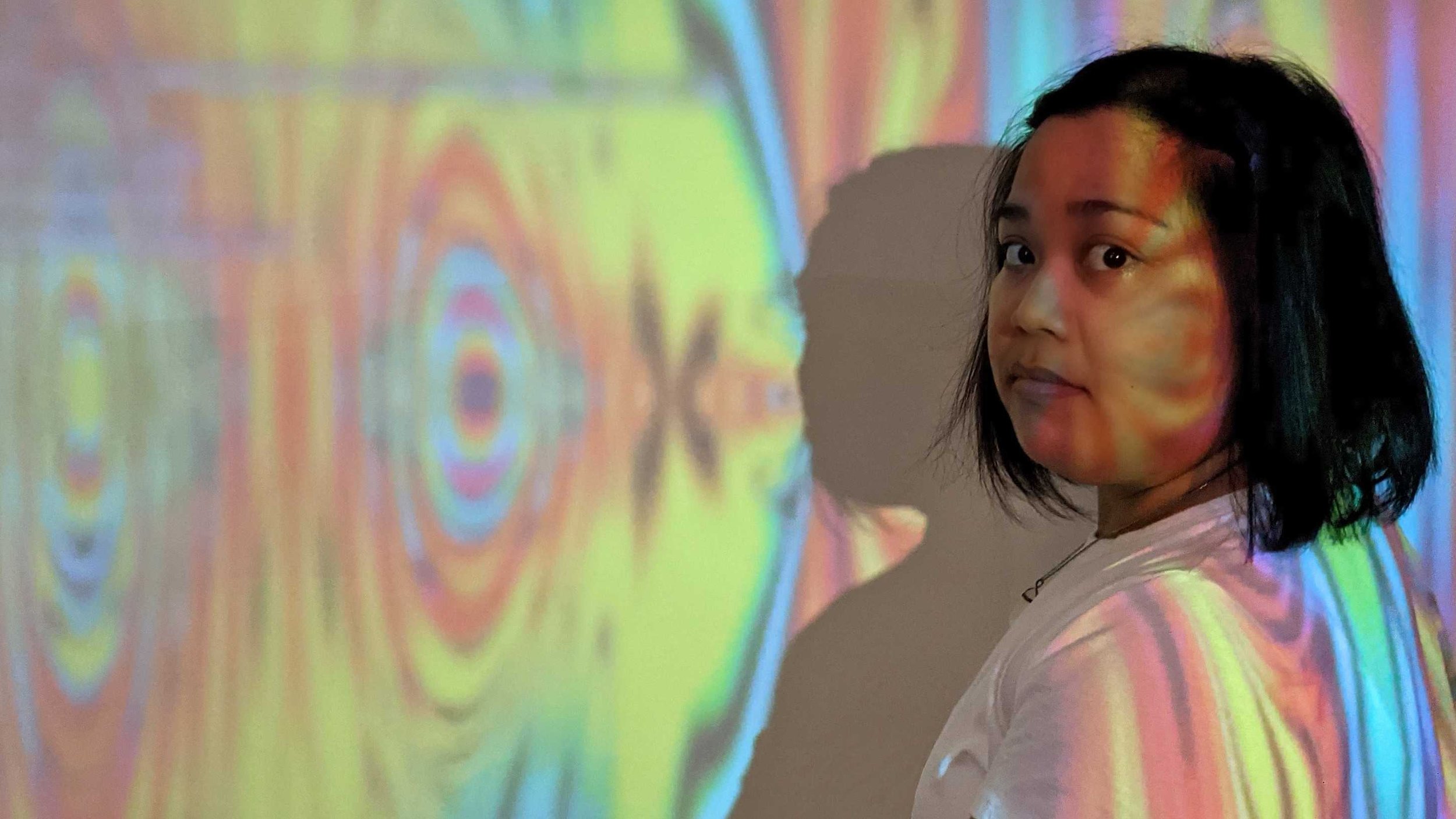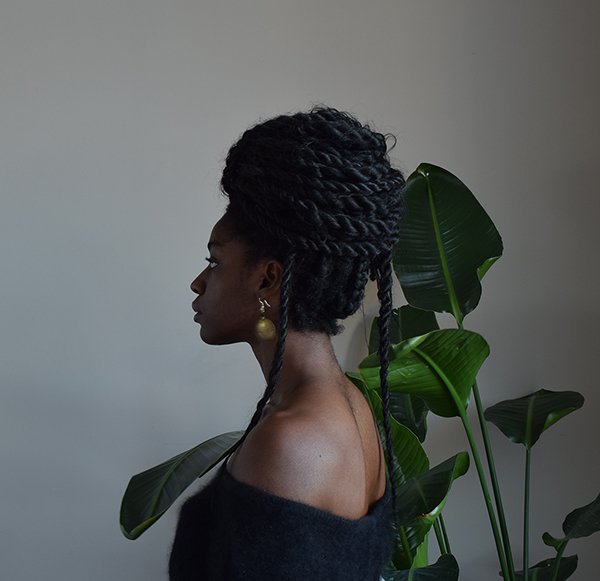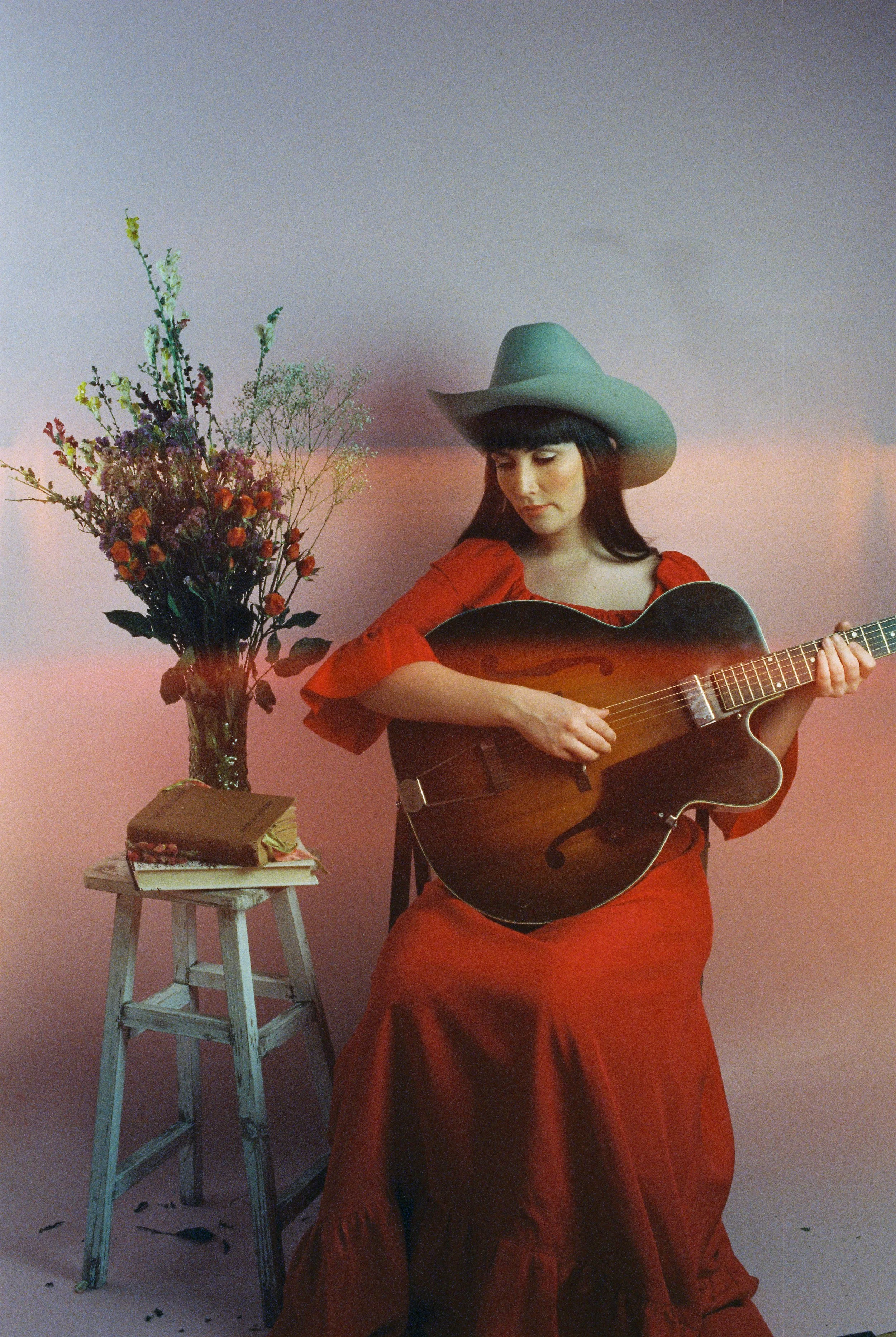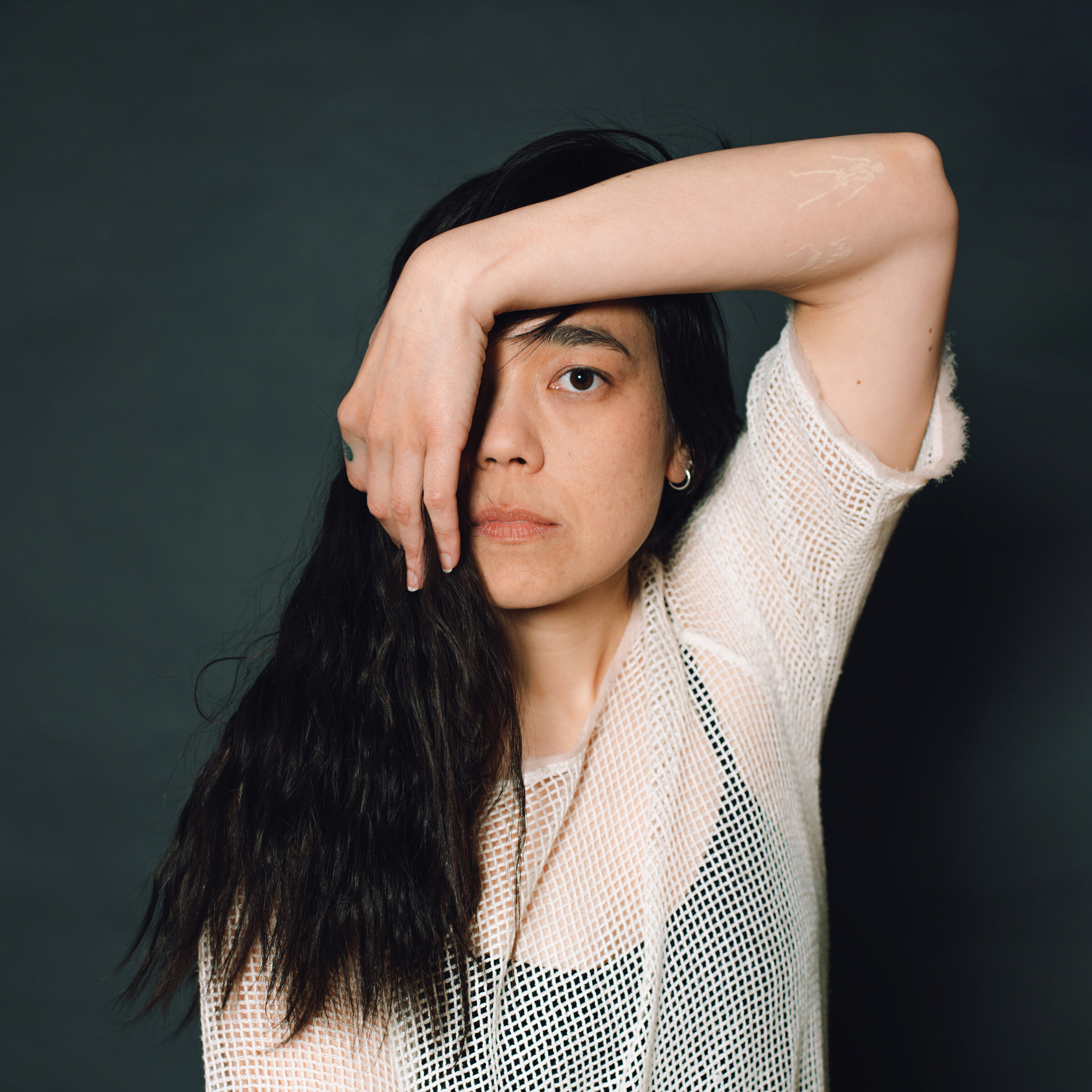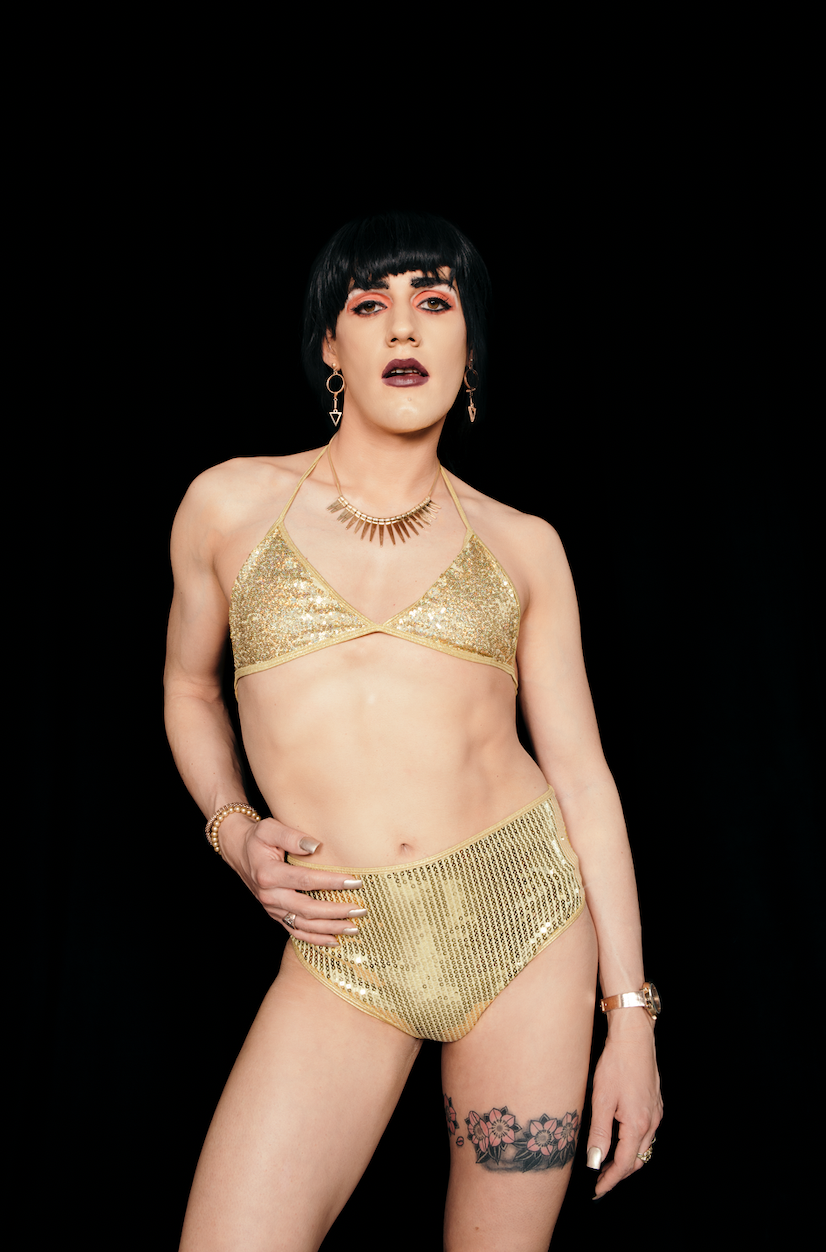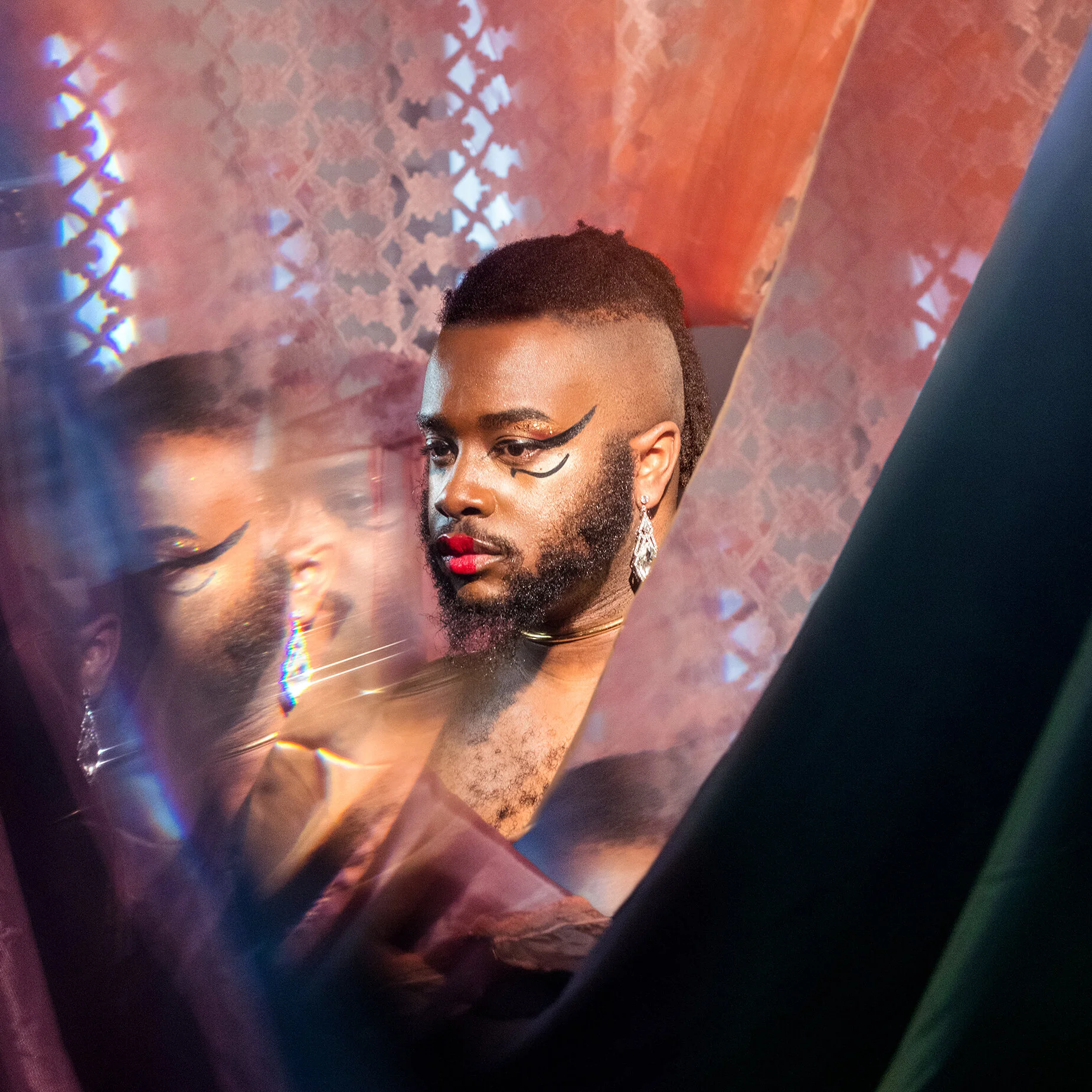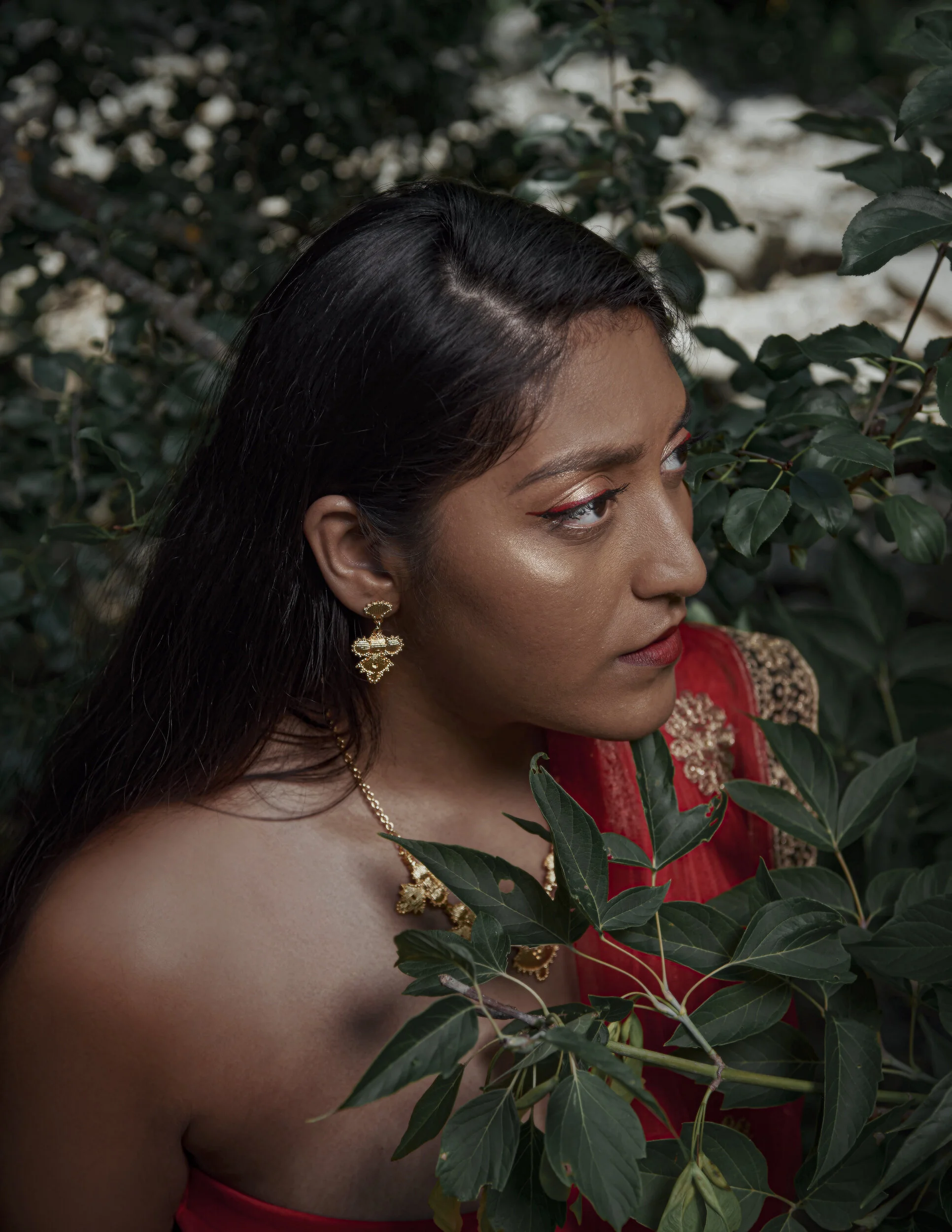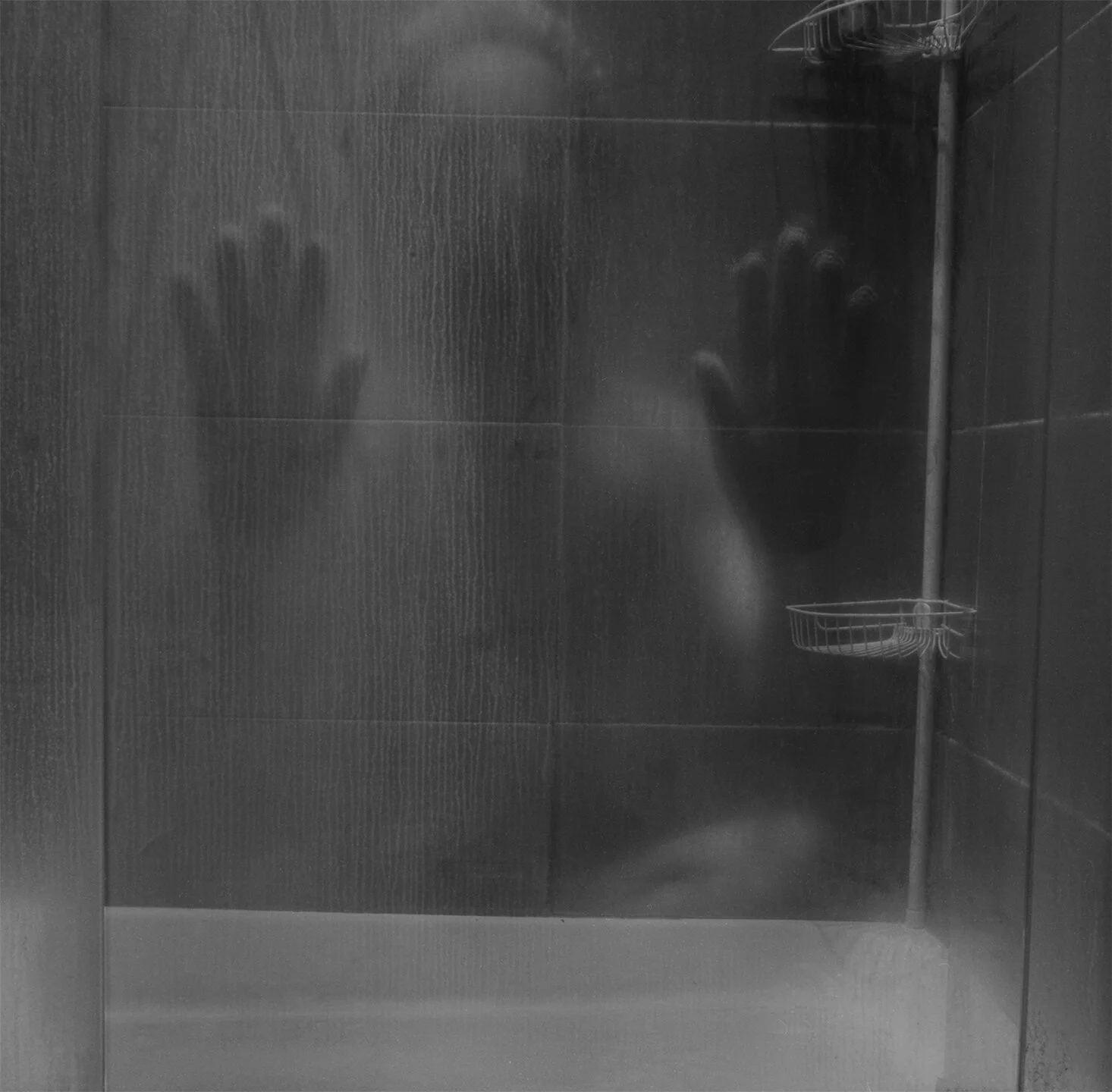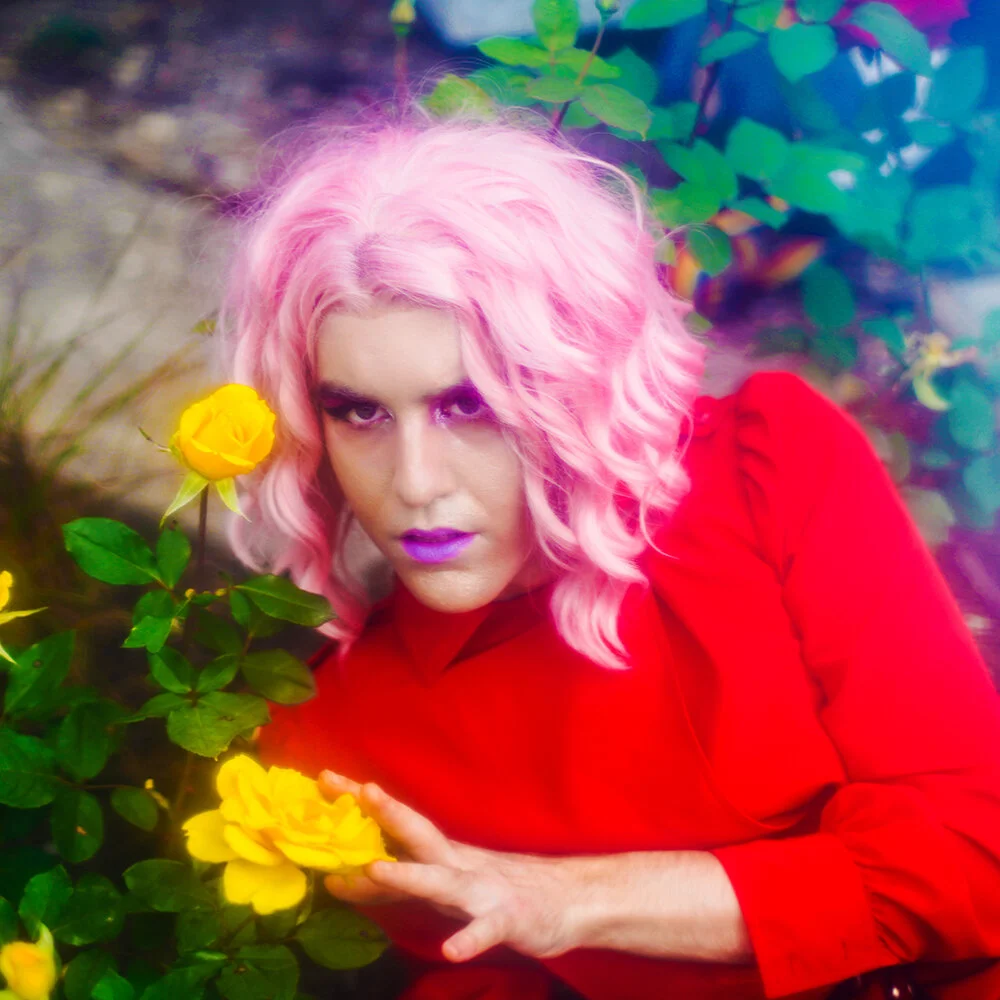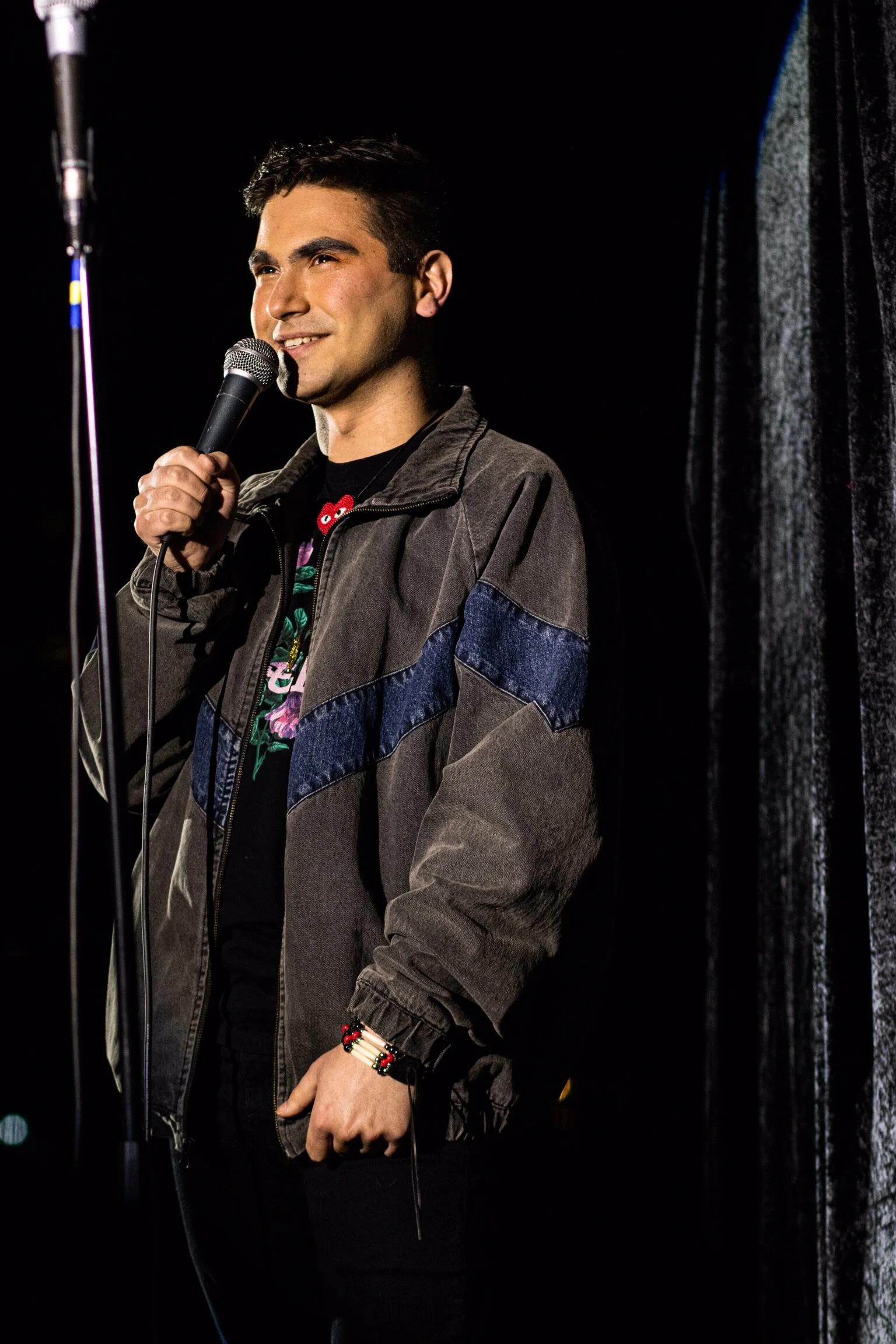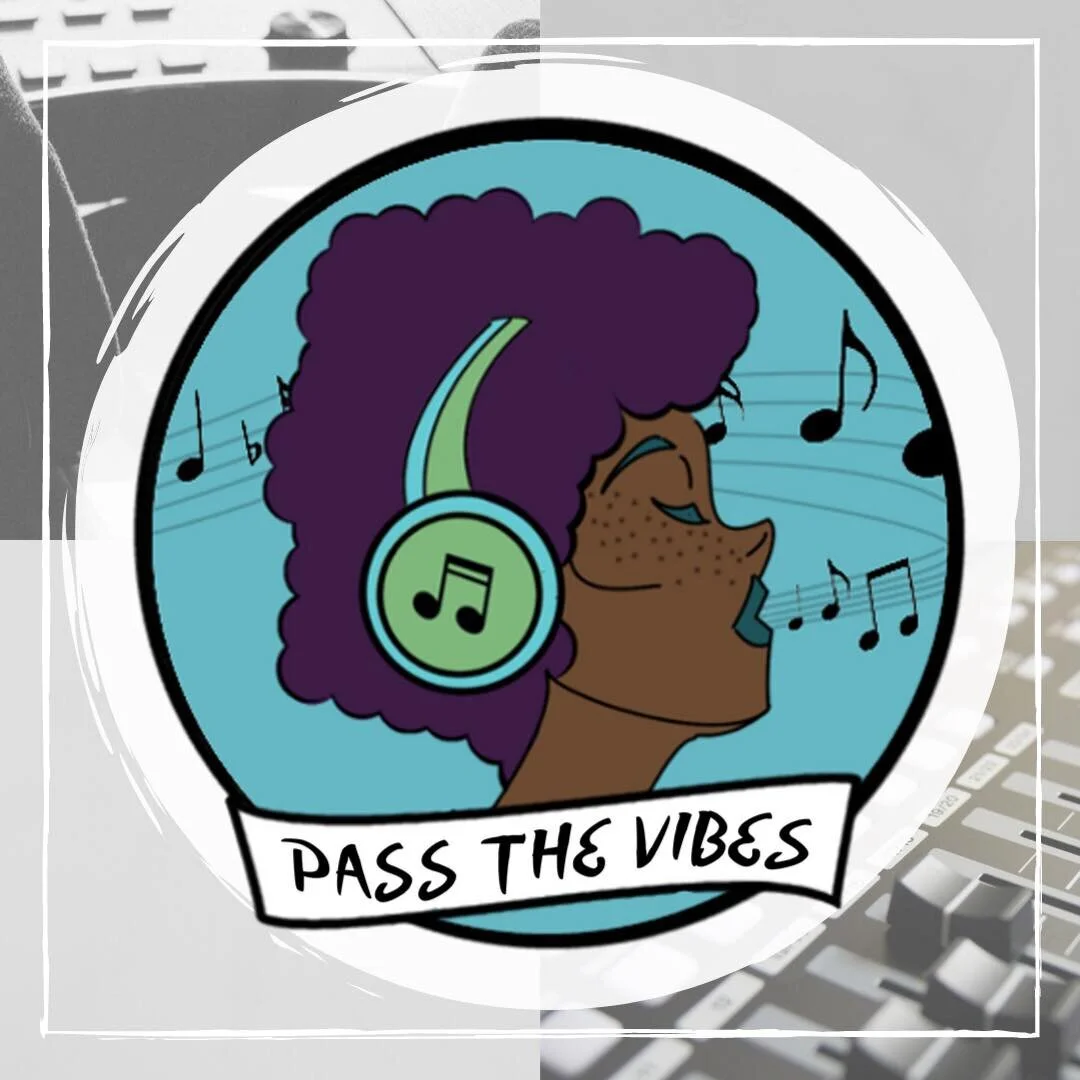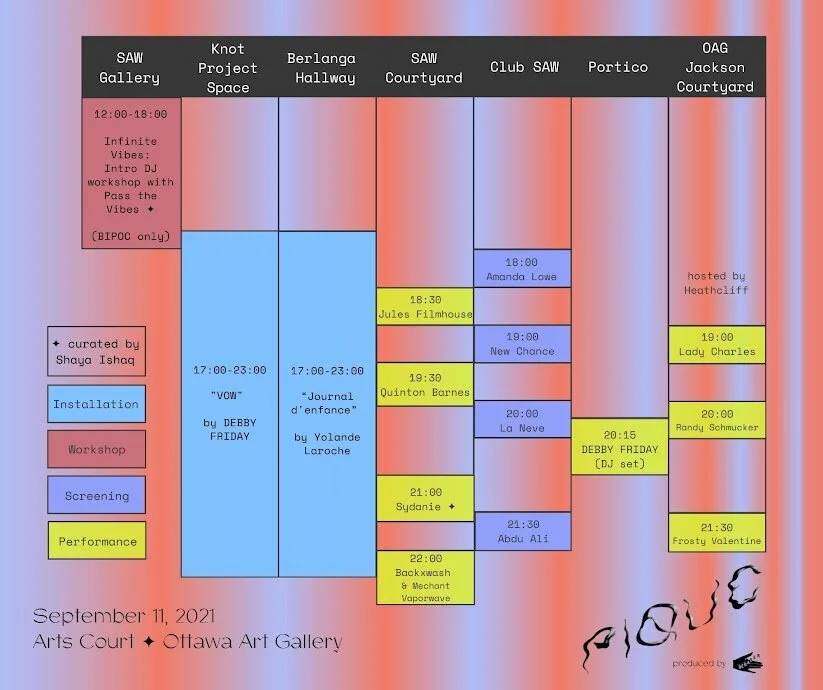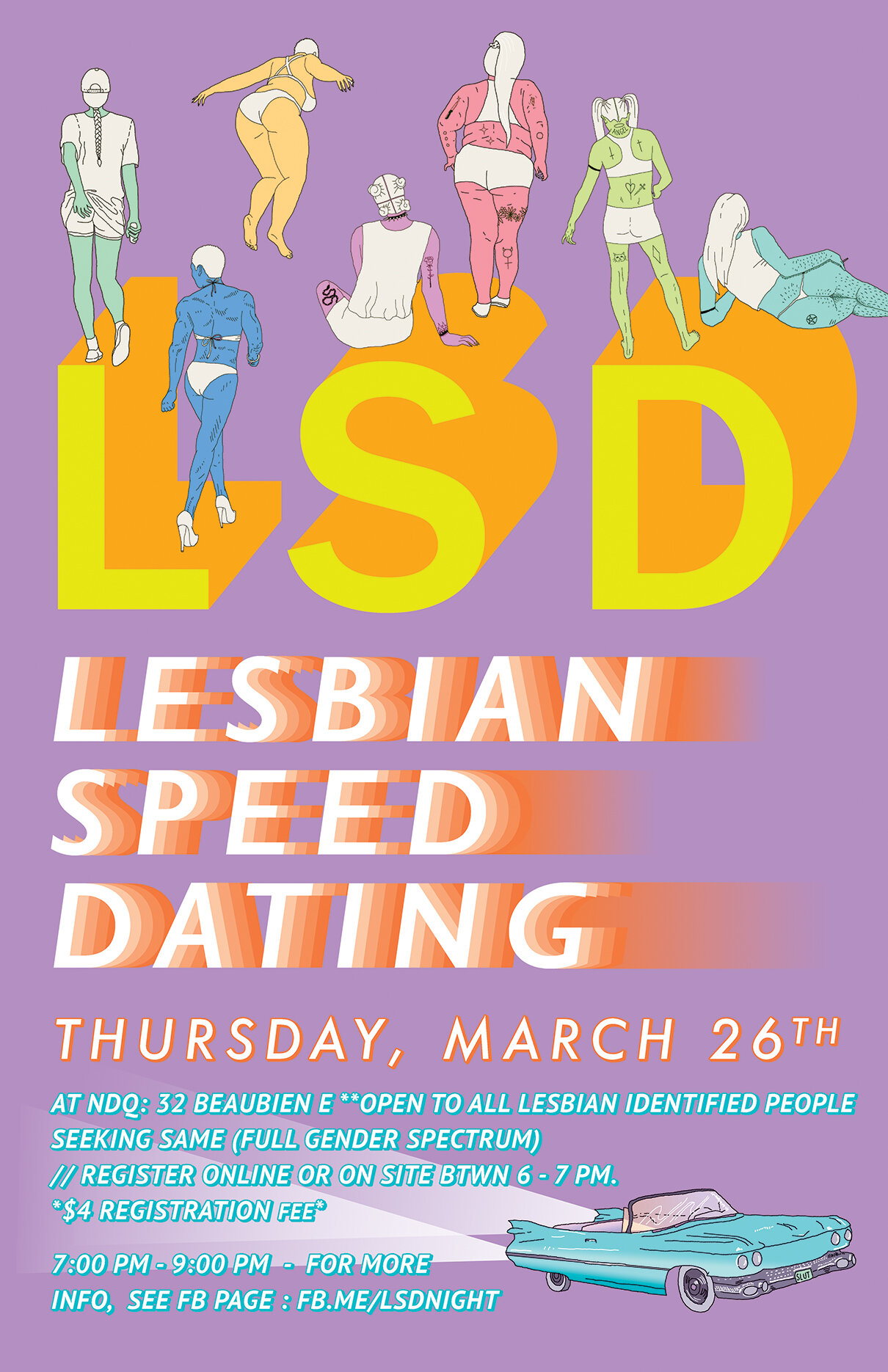The Kaleidoscopically Queer Universe of Cara Connors
Cara Connors at Dynasty Typewriter. Photo courtesy of Andrew Max Levy
Cara Connors is here, they’re queer, and they’re occasionally feral.
What began with an extracurricular shot-in-the-dark at The Second City Toronto has since taken Connors on the ride of their life. The Chicago-born, LA-based comedian has made a name for themself with their charmingly-neurotic stylings, hitting their stride in the fringes between absurdism and sincerity. Their arsenal of talent continues to rise through the ranks, captivating the likes of Just For Laughs, OUTtv, and E! Network.
Most recently, they’ve been on the road sharing Straight for Pay, a solo show that wields Connors’ comedic strengths to explore the nuances of identity and self-acceptance. Between personal anecdotes of divorce, evolution and introspection, Connors fuses eccentric physicality and an earnest heart to keep audiences on their toes. Their recent stop at Diving Bell Social Club was a grand success, featuring the talents of queer Montreal comedian Inés Anaya. But fear not if you missed your chance — Connors’ summer of shenanigans is only just beginning.
Cara Connors at Dynasty Typewriter. Photo courtesy of Andrew Max Levy
Rebecca L. Judd for Also Cool Mag: Your style pulls from a prolific catalogue of comedic influences, ranging from the incomparable Maria Bamford to the rowdiness of your Irish Catholic family. What are the core tenets of your comedy, and how have those evolved?
Cara Connors: Oh wow, there are so many places. Being able to make people laugh has always been both a survival mechanism and my general disposition since as long as I can remember (shout out to my favourite trauma response - fawning!) It's also always been the easiest and most satisfying way for me to connect with all kinds of people.
Early on, I was definitely most enamoured by classic sketch-style shows like SNL and MADtv—cliche for a reason!—and also, perhaps most influentially, mimicking and parodying all the freaky real-life characters I was surrounded by. Teachers, camp counsellors, and parents of my friends with weird vocal cadences all endlessly fascinated me. I've always been a bit of a daydreamer, head-lost-in-the-clouds kinda gal; I can distinctly remember not paying attention in class, being called out, and then apologizing in the teacher's voice to the resounding laughter of my 7-year-old classmates. So much power, and so little respect for my American elementary school curriculum (ok, she's a trailblazer!). Not the most original of premises, but you gotta sometimes give the people what they want. In this case, it was poor impulse control and a knack for impersonations.
As I grew up and got into comedy, my tastes have also thankfully somewhat evolved, and I now look to comedians like Maria Bamford, Rory Scovel, and Margaret Cho for inspiration and leaning into unapologetic strangeness and vulnerability. I love watching people who push the art form forward and who are not afraid to be their freaky little selves — people like Julio Torres, Bowen Yang and Natalie Palamides. Ziwe is so fun to watch and endlessly brilliant and flawless. The list could go on forever.
Also Cool: You got your start in Toronto, taking comedy classes at The Second City while still married and in grad school. Tell me more about finding your footing and making the creative jump – when did it click that this was your path?
Connors: Okay, first of all – trigger warning about mentioning my #straightmarriage! That was a very dark but formative season of my life. I first took the class at The Second City Toronto in an attempt to escape the mind-numbing boredom and academic despair I was wallowing in after a long first year of graduate school. I decided to take it because, growing up in Chicago, Second City was always such an institution and a favourite place for me to take in shows like the little comedy nerd I have always been. I wanted to do something nice for myself! When I realized there was a Canadian outpost in Toronto, I figured I'd give it a shot.
I was hooked instantly. Stand-up is funny, because the first few years are often just a series of terrible open mics in the bleakest settings as you work out what the hell it is you're trying to say. And yet, the people who really, really love it will look around and still be like "This is fabulous! That drunk guy just threw a stool at the stage, and no one is listening to a thing I am saying, AND I really suck at this—and will for about the next four years—and… baby… I can't get enough!"
It still took me a long time to make the connection that comedy was what I was meant to do, but I do clearly remember riding the streetcar home after about two weeks of classes and having a distinct lightning bolt moment thinking "This is what I want to do with my life!". Right on the carpeted seats of the TTC. So romantic!
AC: One of my favourite projects of yours is the 90 Day Fiancé series. Your range is incredible, and the impressions are ridiculously accurate! I'd love to hear more about the makings of this series, and how the show resonated with your comedic stylings.
CC: Thank you for saying this! I love 90 Day Fiancé in such a strong, guttural way that I am actually not sure WTF my problem is! I started watching the series a few years ago as a part of my general reality TV slate, but took a deep-dive when the pandemic hit because it was one of the few things bringing me joy and offering the exact kind of escapism that I needed. I was holed up in the mountains with a woman I had just met (she has a type!) and started bingeing all the seasons and spin-offs, and realized I couldn't keep my obsession to myself much longer.
The casting department on that show is *chef’s kiss*, and each season just goes more and more off-the-rails. It also has such a diverse array of white people from all over the world behaving heinously, and I just couldn't help but poke a little fun. The series brought in a weird contingent of people consuming my comedy, because that fan base is basically an empire of cable-loving moms, so I still get occasional comments on my page from people insisting I post less gay thirst traps and more 90 Day vids. It's like, “...babe, I make these vids for ME first and foremost, and I am a person and not a dancing monkey, so don't tell me what to do! Or at least buy me a drink first!”
AC: Straight for Pay is a unique show, blending the intimacy of your queer evolution with visceral expression and utter foolishness! Has that willingness to share your story ever challenged you? How has this project in particular further molded your queer identity?
CC: This hour is definitely the most vulnerable comedy I have made thus far. Delving into my personal life in an authentic way—not just mining it for more surface-level jokes—has been really meaningful, but it has also stirred up a lot for me internally. It's challenging, to be honest, talking about what has been such a strange and (at times) difficult journey. but it has felt really powerful to be able to share it and have so many people relate to it in different ways. If I am not pushing myself to be more open and more real and find a way to make it as funny and sincere as possible, then what is the point? I am an earnest bitch, and I felt so alone for so many years as I sorted through (and continue to sort through) my sexual and gender identity. During that time, I clung to the work of so many other brave artists that it feels special to now be in a place where I can begin to pay that forward. My queer identity continues to be molded by the larger, collective queer identity of the amazing people I continue to meet and am lucky enough to surround myself with, and I am just getting started!
AC: In selecting stops for this tour, you've said it was important to you to choose cities with identifiably queer arts scenes. Tell us more about your relationship with Montreal – what is your perception of the city, and what are your most memorable MTL experiences?
CC: Montreal is hands-down one of my favourite cities in the entire world. I have been hooked ever since I first moved to Canada, and would make any excuse to come down for a weekend of eating, drinking and general queer debauchery. I love the food! I love how everyone minds their own business and is down to earth! I love how hot and low-key queer everyone is! And I love Bota Bota! (Not sponsored, but I'm all ears!)
My first girlfriend was also from Montreal, and so the city will also always be inextricably tied to romance, queer angst and weird memories of me overhearing mundane phone conversations she would have in French where I would always find myself kinda turned on. That's how I feel about Montreal all the time. Just sort of hot and bothered all the time.
I associate the city with fun and laid-back people who like to laugh and enjoy and let the bullshit go. It's such an artistic, creative enclave that doesn't always get the attention it deserves, but everyone I meet in Montreal is working on some exceptionally specific and beautiful pursuit and, okay, I have a crush on you all! What's the big deal?
My show at Diving Bell Social Club was one of the absolute highlights of my tour, and Montreal in general is one of my favourite places to perform. I felt so immediately embraced by the crowd, and will be back as soon as I can.
AC: Thank you for your time, Cara! Looking ahead to the rest of the year, what can our fellow neurotic queers expect from you next?
CC: OMG, hi fellow neurotic queers! I love you precious baby angels so much, and I am so glad you're here.
This summer, I'll be taking my hour down South for Pride month to spread my good gay gospel (and give all these dystopic, heartless, homophobic caricatures of politicians down there something to get angry about… besides creepily trying to control the bodies and words of children. Cue: Mariah Carey's “Obsessed”.) I will then be heading overseas for the first time for a string of dates in the UK and Europe, and releasing my hour as an album in early July. I have not shared this with anyone yet, but gays love gossip, so it's only fair to break the news here.

